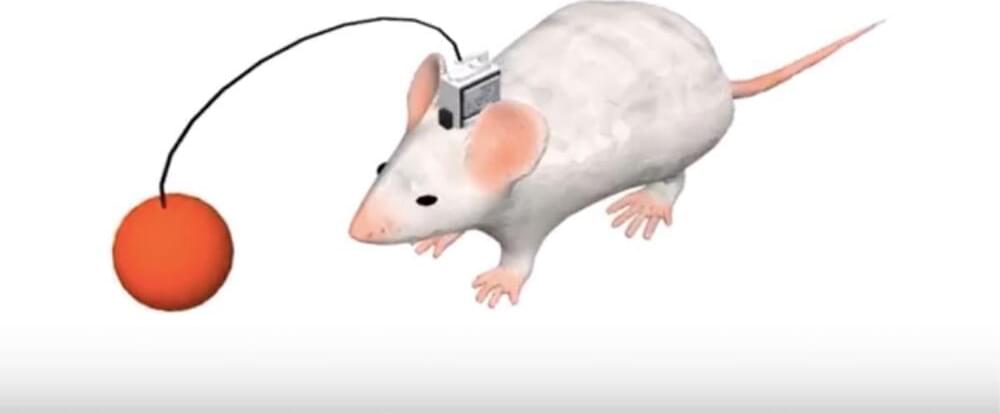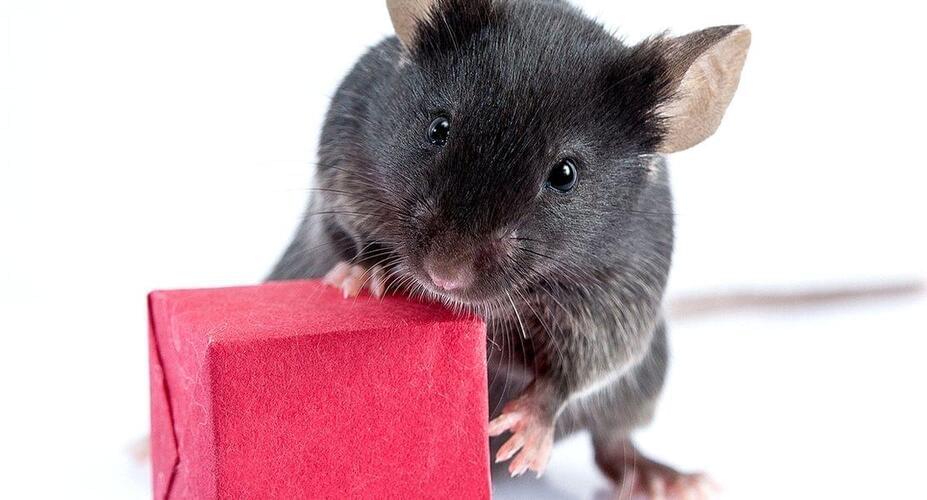Cells with XX or XY chromosomes provide researchers with a new tool to study how differences in sex chromosomes can influence health and development.
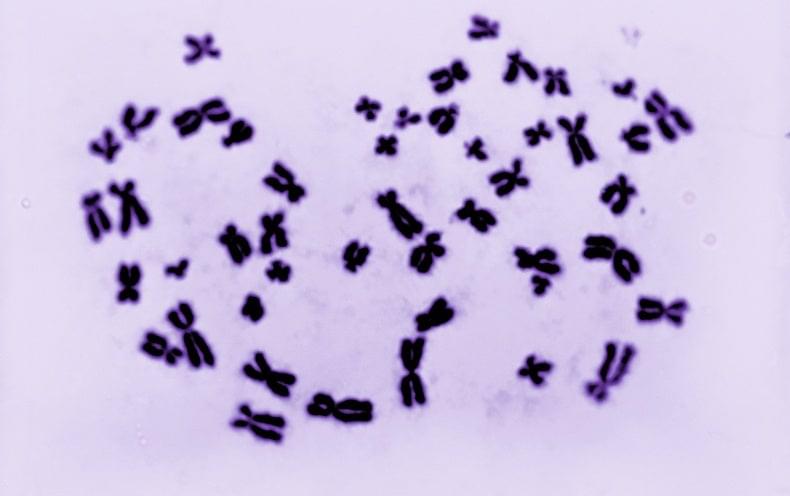


A sex startup says it’s created a VR-enabled masturbation pod for companies that want to make their employees very uncomfortable, very quickly.
Stripchat, a porn site, announced in a blog post that it’s developed something it’s dubbed a “Wank Pod” to give company employees a place to engage in a little office onanism. The company even installed one in their own workplace, and plans a commercial roll out in the future.
“Each ‘Wank Pod’ is planned to come fully equipped with masturbatory accessories, including a 4K LED screen to watch VR cams boosted by Dreamcam’s technology, an Oculus Quest VR headset, lotion, tissues, and more,” the startup wrote in the announcement.
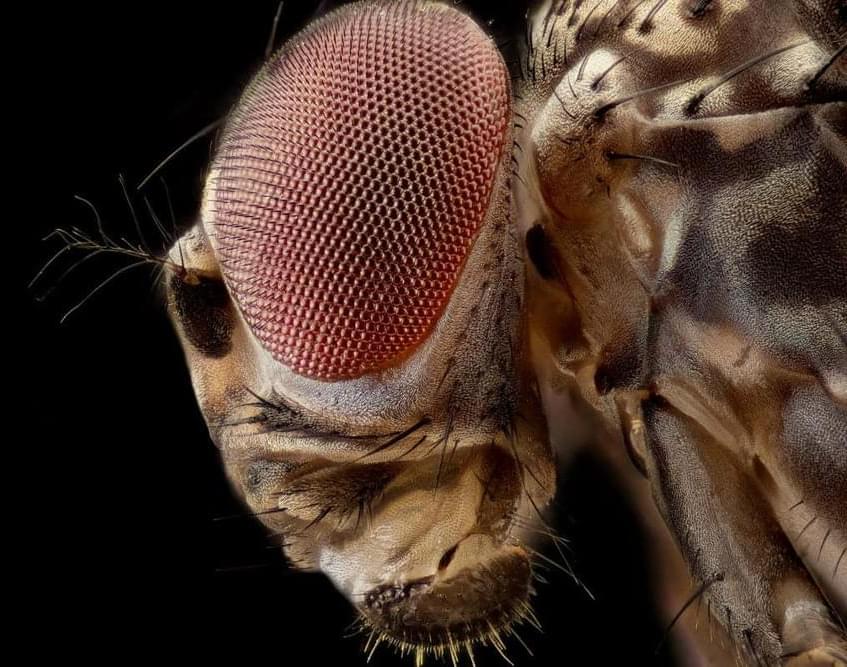
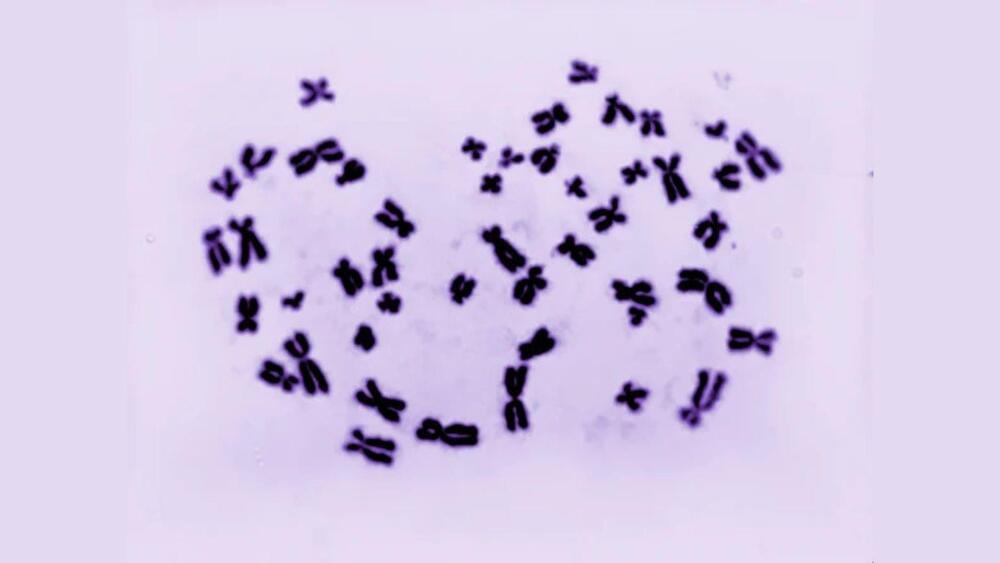
It will provide a better understanding of how drugs affect men and women differently.
Scientists created male and female cells with the same genetic code from the same person for the first time. This unique set of cells could provide researchers with valuable insights into how sex chromosomes affect various diseases and their role in early development.
CDC/Dr. Laine.
The sex chromosome.
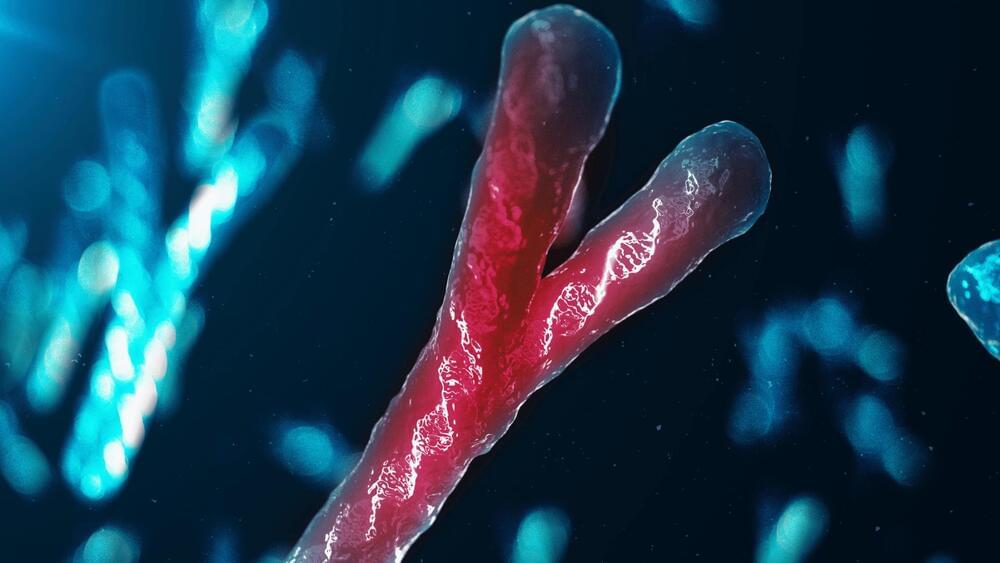
What alternative sex-determining system will we adapt?
The sex of human and other mammal babies is decided by a male-determining gene on the Y chromosome. But the human Y chromosome is degenerating and may disappear in a few million years, leading to our extinction unless we evolve a new sex gene.
A new paper in Proceedings of the National Academy of Science shows how the spiny rat has evolved a new male-determining gene.
Usis/iStock.
The good news is two branches of rodents have already lost their Y chromosome and have lived to tell the tale.
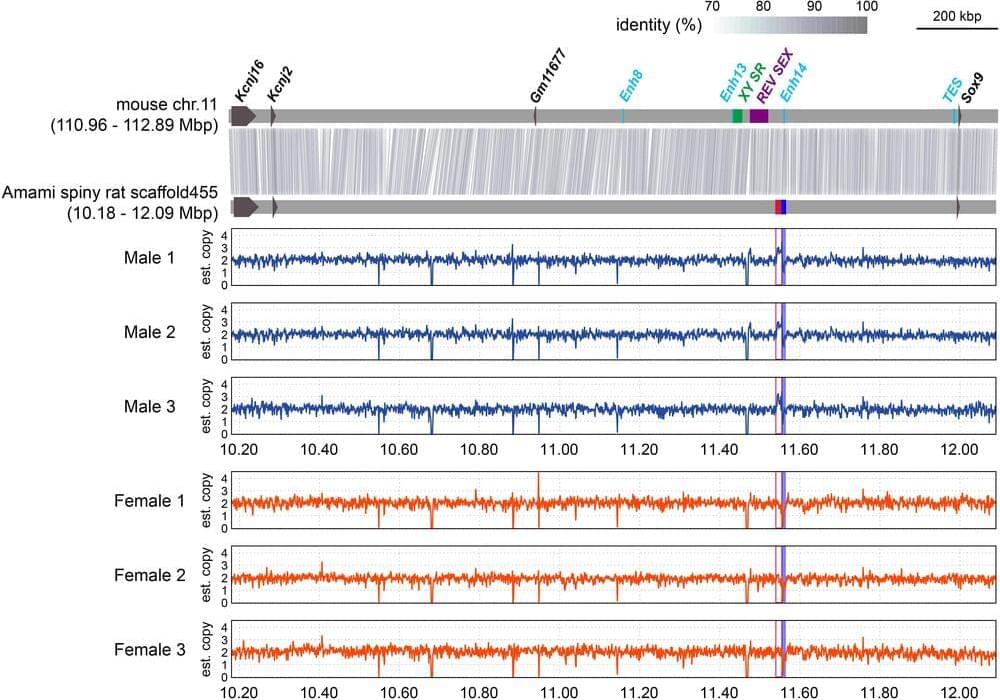
Mammalian sex chromosomes are highly conserved, and sex is determined by SRY on the Y chromosome. Two exceptional rodent groups in which some species lack a Y chromosome and Sry offer insights into how novel sex genes can arise and replace Sry, leading to sex chromosome turnover. However, intensive study over three decades has failed to reveal the identity of novel sex genes in either of these lineages. We here report our discovery of a male-specific duplication of an enhancer of Sox9 in the Amami spiny rat Tokudaia osimensis, in which males and females have only a single X chromosome (XO/XO) and the Y chromosome and Sry are completely lost. We performed a comprehensive survey to detect sex-specific genomic regions in the spiny rat. Sex-related genomic differences were limited to a male-specific duplication of a 17-kb unit located 430 kb upstream of Sox9 on an autosome. Hi-C analysis using male spiny rat cells showed the duplicated region has potential chromatin interaction with Sox9. The duplicated unit harbored a 1,262-bp element homologous to mouse enhancer 14 (Enh14), a candidate Sox9 enhancer that is functionally redundant in mice. Transgenic reporter mice showed that the spiny rat Enh14 can function as an embryonic testis enhancer in mice. Embryonic gonads of XX mice in which Enh14 was replaced by the duplicated spiny rat Enh14 showed increased Sox9 expression and decreased Foxl2 expression. We propose that male-specific duplication of this Sox9 enhancer substituted for Sry function, defining a novel Y chromosome in the spiny rat.

If your morning never starts without a cup of coffee, you may be intrigued to learn that drinking the wildly popular beverage could significantly lower your risk of dying within the next few years, a new study suggests.
The study, published online May 31, 2022, by Annals of Internal Medicine, analyzed data about coffee consumption from more than 170,000 people (average age 56) from the United Kingdom who did not have cancer or cardiovascular disease at the study’s start. The researchers tracked participants over an average of seven years. They also accounted for such factors as lifestyle, diet, sex, age, and ethnicity.
People who drank 1.5 to 3.5 cups of coffee each day, even with a teaspoon of added sugar per cup, were up to 30% less likely to die during the study period than those who didn’t drink coffee. It didn’t appear to matter if the coffee contained caffeine or not, but the benefit tapered off for those drinking more than 4.5 cups each day.
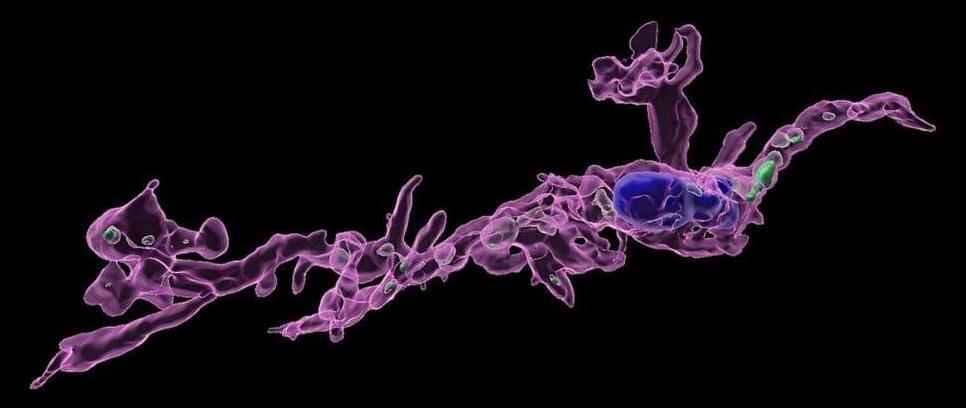
Excess fat triggers immune cells to overeat serotonin in the brain of developing male mice, leading to depression-like behavior. More than half of all women in the United States are overweight or obese when they become pregnant. While being or becoming overweight during pregnancy can have potential health risks for moms, there are also hints that it may tip the scales for their kids to develop psychiatric disorders like autism or depression, which often affects one gender more than the other.
What hasn’t been understood however is how the accumulation of fat tissue in mom might signal through the placenta in a sex-specific way and rearrange the developing offspring’s brain.
To fill this gap, Duke postdoctoral researcher Alexis Ceasrine, Ph.D., and her team in the lab of Duke psychology & neuroscience professor Staci Bilbo, Ph.D., studied pregnant mice on a high-fat diet. In findings appearing November 28 in the journal Nature Metabolism, they found that mom’s high-fat diet triggers immune cells in the developing brains of male but not female mouse pups to overconsume the mood-influencing brain chemical serotonin, leading to depressed-like behavior.
